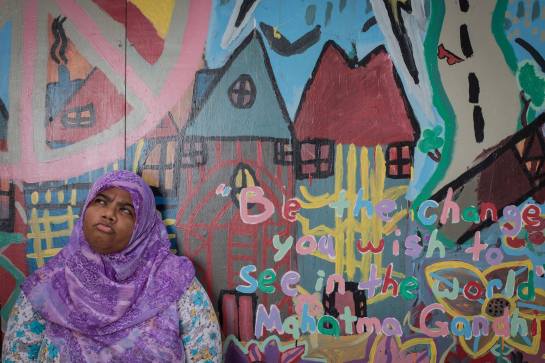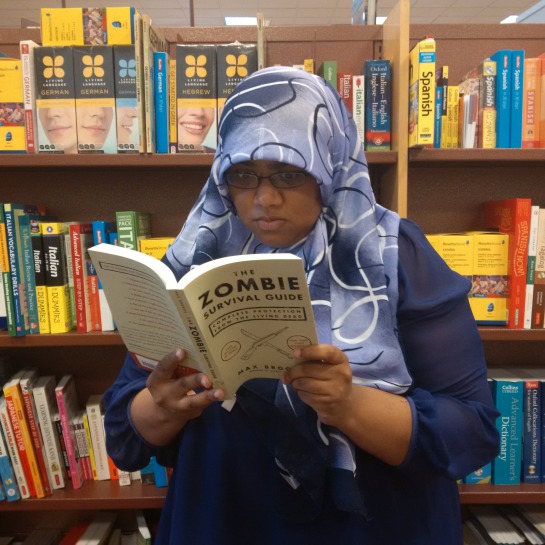
Last year I participated in a local TEDX. I had hoped the video of my talk would be up by now but it isn’t and I am not sure it ever will be. So to restart my blog posts about coping with loneliness, I have decided to post the text of my speech here. Enjoy and share.
******
Loneliness killed my mother and it almost killed me.
But first, I probably should explain the whole Zombie reference in my title.
I watch the Walking Dead. There are just so many reasons for me not to like the Walking Dead. Like Rick, he is such a terrible leader and I am so angry that he hooked up with Michonne. She is so much cooler than him.
But I just keep watching the show. And I think I know why. In the Walking Dead, I like it how The Group’s members will put their lives on the line again and again to save people who are not their blood relatives and who they have no interest in having sex with. People are rescuing people who they are not trying to hook up with and who are not their kids.
And I like watching that because for me that’s the fantasy world I want to live in because after my mother committed suicide three years ago I was left with no family and no one who as far as I know wants to have sex with me. I was left completely alone.
And I know I am not alone in being alone, more and more people in our society have no real connection with family and are single.
I have friends but, let’s face it, friends are a strange phenomenon with no grounding in biology. It’s hard to know if we can rely on friends the way it seems like we can rely on family and lovers because DNA and oxytocin are on our side.
After my mother’s death, I sunk into a serious depression. I have struggled with depression my whole life so that was nothing new. I also had a lot of grief and guilt because her death was so unexpected and I blamed myself for not preventing it.
But there was something else happening to me. That was unfamiliar and that at first I didn’t know how to name.
It was like this black hole opened up inside me and it was full of fear. It was like the kind of fear you would have if your house was surrounded by zombies and it was only a matter of time before they got in to eat you. And like, who really wants to be torn apart by zombies? Like it’s fun to watch on TV or in a movie, like I will admit that’s a personal highlight of mine because there is a lot of talent that goes into making a good zombie dismemberment, a lot of artistry because it’s not real it’s just awesome make up and prosthetics. But it would be pretty scary to have to face death by zombies in real life and I found myself feeling as scared as if my death was imminent.
Then I realized it was because I was alone and I thought that I could choke on some shawarma in my house and there would be no one to do the Heimlich maneuver or call 911 and no one would notice I was dead because most of my close friends live in Toronto, most of my Ottawa friends are just pretty busy so I don’t see them that often and I mostly work from home so….no one would notice if I was gone.
My mother was the only person who ever would have noticed if I wasn’t there.
I soon realized that what I was feeling was Loneliness.
Because what is loneliness? It is that feeling of pain we experience because of social isolation or social rejection.
And it makes sense biologically. Neuroscientist Dr. John Cacioppo believes that because humans are social animals and we are so dependent on one another for our survival we have developed the feeling of loneliness to be a signal so we form attachments and stay connected. If you think about human life before Starbucks or roads, it was a lot like life after a Zombie Apocalypse, you can’t last long without other people.
And what Cacioppo’s research has also shown is that long-term loneliness is as detrimental to our health as smoking and three times more dangerous than obesity. Because think about it. It would be super scary be alone in the jungle by yourself thousands and thousands of years ago. Just like you wouldn’t want to be by yourself in a city overrun with zombies because sooner or later something is going to try to eat you and there is no one around to have your back.
So his research has shown that when were are experiencing chronic loneliness it is like we are alone in a zombie apocalypse, our cortisol levels go up so we can be ready to fight off attacks or run, we sleep less deeply because you have to listen out for walkers trying to come up and eat you. And if you experience this for a long time, it compromises your immune system, your cardiovascular system, it often leads to clinical depression, it makes your more likely to develop dementia. It prematurely ages you. It shortens your life. It can kill you.
Cacioppo argues that we need to take loneliness seriously and consider it a public health issue the way we see smoking as a public health issue.
But how do you cure loneliness?
Let’s put that on hold for a second and I want to get back to social rejection.
So as a kid I watched everything, like I think I watched Night of the Living Dead, the original and still the best zombie movie every when I was 5. My mother and I were best friends, we were each other’s only friends, it was just me and her against the world. So I would watch whatever she watched. Although I had a childhood that on paper seemed pretty messed up as there was poverty and sexual violence and my family ended in the news because it was so dysfunctional and messed and trying to hire hitmen to kill each other which kind of explains why I don’t talk to them anymore, I have to say when I look back it is full of great memories of watching movies with my mother. And she would also give me the history of the month, and tell me about the director and the actors and different challenges they had on set. So time with my mother was great.
It was time with other people that was scary whether it be my family or people at school. I didn’t fit in at school mainly because I was just really weird kid, I mean I just said that I watched Night of the Living Dead when I was five that’s weird. And I just couldn’t relate to anyone because their life didn’t seem like life and I had nothing really to talk to them about because you know they weren’t really interested about how Night of the Living Dead was really about racism in America. Which of course my mom taught me.
So I had a lonely childhood outside of my house, but inside I was safe and I loved and I was wanted. We belonged to each other.
So our experiences of social rejection, particularly if they last for a long time like they did for me, effect how we look at the world. I learned to see people as threats, not as people who can help you or people who can make things easier. It was best to avoid other people.
So that makes sense given how I grew up.
But what neuroscientists are also finding is that if you experience chronic loneliness, even if you didn’t have a childhood like mine, your brain will also start looking at other people as threats. So at a time when you really need to be reaching out to people, you can find yourself withdrawing. But again it makes sense from a survival perspective. As we see in a lot of Zombie Apocalypse scenarios you need your group because other groups could want to steal your stuff and maybe even eat your for protein…because let’s face it all the canned tuna is going to run out.
So, over the years, I did develop friends and I became very outgoing and sociable. Which left my mother alone at home most of the time. So as my world grew, hers go smaller and as she also coped with serious mental illness, it all eventually took its toll.
But after my mother died, I found myself, going back to how I was as a child. People scared me. Phone calls scared me and I sometimes wouldn’t answer them even if they were from friends who I desperately wanted to talk to.
Of course I didn’t know about any of this research at the time so I just thought I was totally losing it.
But what was also confusing what that, I would feel scared about going a friend’s birthday party but I could very easily stand in front of a 100 people and deliver a speech. That was fine. Which made no sense.
I forced myself to go to my friend’s birthday party and I hid behind my laptop the entire time, I only spoke when I was spoken to. I felt so scared. I felt that like, if the zombie apocalypse happened right then, all of these people around me, even my friend, would conspire to feed me to the zombies. I would become zombie bait!
But the same week I facilitated a workshop for a bunch of strangers on a really challenging topic and no problem, I was talking, I was joking, I was doing my thang.
What’s the difference?
The problem is we often think lonely people lack social skills or are all introverts. That’s a myth actually. Research has shown that ya, if you put people who identify as chronically lonely in a group where they are just left to sit around and spark random conversation, it is hard for them to do. But if you us a role and a task, we are awesome, we sometimes actually show better social skills than the unlonely people.
Because what some people who study loneliness now believe is that lonely people may actually be more attuned to people around them, we read people more. Because we want to connect with them or because we because we are kind of wary of them and want to protect ourselves. For whatever reason, it is not that we don’t have social skills.
I am a great listener which is why people tell me too much information all the time. I am good at facilitating or tutoring. I can connect very easily to people and groups if that’s my job.
But I can’t do birthday parties or weddings or parties or hanging out with more than just one person in a coffee shop.
So again, how do you cure loneliness?
Well, what is the opposite of loneliness?
It’s feeling connected, feeling like you belong, feeling like you fit.
And that is a feeling it is easy to lose. You can lose that feeling in your family, in your marriage, at work. If you immigrate to a new country. There are so many ways we can become disconnected. You don’t have to be like me and have no family. You can have a huge family but if you don’t feel they accept you, if you don’t feel you are understood or that you belong, you can feel very lonely, even surrounded by people.
That’s also why, according to neuroscientist John Cacioppo, you can’t cure loneliness just by being kind to people. We can be in a hospital and the nurses are kind to us and we are fed and all of needs are met, but we still feel lonely. Because we are not giving back.
The relationships we need to not feel lonely have to give us a sense of “mutually aided protection”. The relationships are reciprocal, you depend on people and they depend on you. You give and you take. We need to feel both needed and wanted and we need to feel the same about the people who feel that way about us.
Again according to the work of neuroscientist John Cacioppo, you don’t need to have many people in your life that you feel that way about, it can be just a few people.
When I realized that what I was feeling was loneliness I googled loneliness and discovered Cacioppo’s work and that of other academics on the subject of loneliness. Realizing that what I was experiencing was a serious brain state and not just as character flaw really helped me to feel not so powerless in the face of loneliness.
So again, how do you cure loneliness?
The answer is I don’t know. But I am learning how to manage it.
Cacioppo recommends a system called EASE and I have been trying to follow that.
The E in EASE stands for Extend Yourself-That means answering phone calls, accepting invitations to parties and get-togethers. Basically, I have to stop withdrawing.
The A in EASE stands for Action Plan: So you take control. I mapped out my social connections and during the week I try to connect with a least two of my friends in person, one on one or by phone
The S in EASE stands for Selection: To overcome loneliness it is about quality not quantity. It is also about making sure you feel safe and comfortable and connected with people who you can really build some sort of relationship with because you have things in common.
The E in EASE stands for Expect the Best: This means expect the best from people. This is really difficult for me because I have had a lot of negative experiences with people so trusting people is hard and being vulnerable around people is hard.
Taking the step to take action on dealing with my loneliness meant letting people know I was lonely, letting people know that I really need their time and company and love. And that was very hard.
It is easier for me to ask people for money-I grew up on welfare so I am pretty desensitized to the humiliation that comes with being financially dependent on others-but asking for people’s time, calling up a friend late at night because I felt like my loneliness was literally crushing…that has been incredibly hard.
But I started to do it and yes some people rejected me or made fun of me or gossiped behind my back so those people aren’t in my life any more and good riddance.
But most other people took the time when they had it, they made space for me in their lives. And they did it in a way that I didn’t feel like they were doing me a favour, they made me feel that I was someone they wanted around. That I was part of The Group. And that is the key to easing the feeling of loneliness.
Right now my battle is with loneliness. And if I survive it, I probably will be strong enough to take on some zombies.
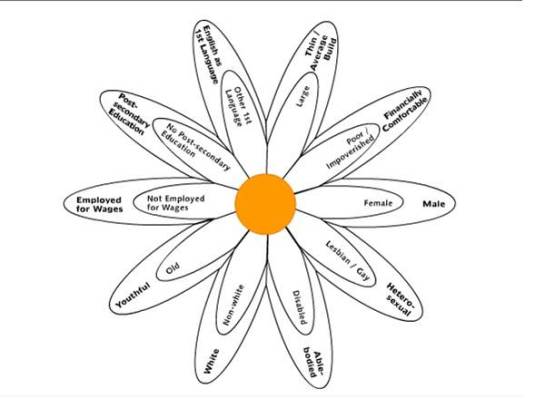
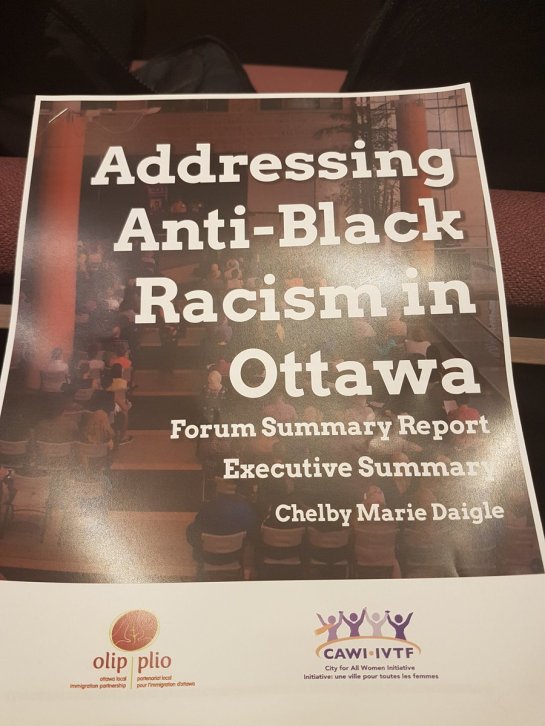
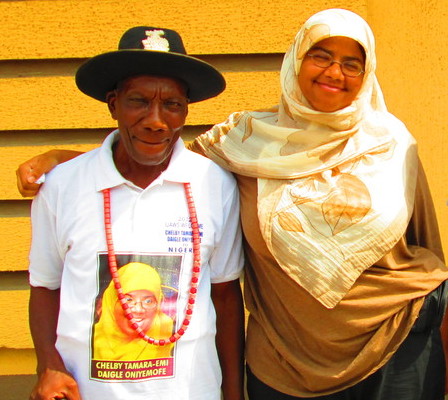

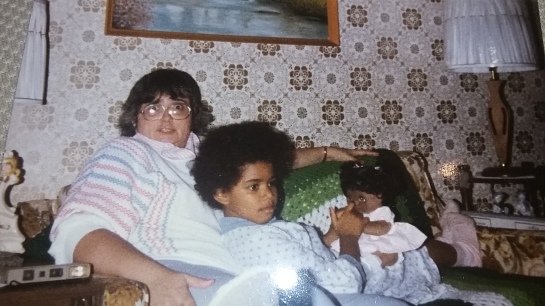
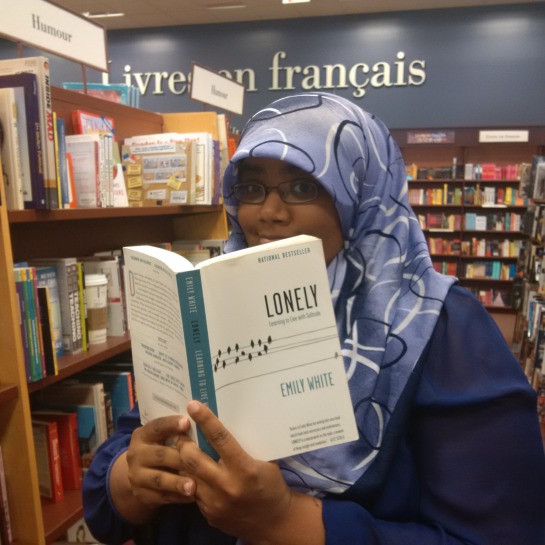 This is the first in a series of personal blog posts about living with chronic (trait) loneliness and state loneliness (I will explain the difference later in this blog post) aimed at helping me map out my own journey with this condition and at getting others to better understand loneliness as a serious public health issue.
This is the first in a series of personal blog posts about living with chronic (trait) loneliness and state loneliness (I will explain the difference later in this blog post) aimed at helping me map out my own journey with this condition and at getting others to better understand loneliness as a serious public health issue.